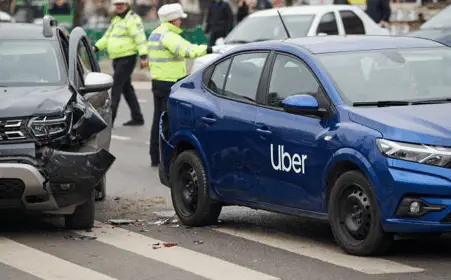Uber and Lyft have grown in popularity, leading to more rideshare accidents. While these accidents might seem similar to traditional car crashes at first glance, they often involve far more complexity.
The unique nature of rideshare operations introduces legal and insurance challenges that can make resolving these cases more difficult. Anyone involved in such an incident should consider consulting an experienced lawyer for rideshare accident claims to navigate these complexities effectively.
Insurance and Liability: A Web of Complexity
One of the main reasons rideshare accidents are more complicated than regular car accidents is the layered insurance coverage involved. Traditional car accidents typically involve the personal insurance policies of the drivers.
However, rideshare drivers operate under different insurance rules depending on their status at the time of the accident. If the driver was not logged into the app, their auto insurance usually applies. If they were logged in but had not accepted a ride, a rideshare company’s contingent liability coverage may come into play.
During active transportation of a passenger, the company’s commercial insurance policy generally takes over. This shifting coverage can make it challenging to determine which insurance is responsible for paying claims, often leading to disputes between insurers.
Liability in rideshare accidents is also more complex because multiple parties can share responsibility. Besides the rideshare driver and other motorists, the rideshare company itself might be liable, depending on the circumstances.
Passengers and even pedestrians or cyclists involved add further layers to the legal puzzle. This multiplicity of parties complicates fault determination, as each may have different insurance policies and degrees of responsibility.
Legal and Regulatory Challenges
Rideshare companies are often classified as technology platforms rather than traditional transportation providers. This classification creates a legal grey area, allowing these companies to avoid some regulations that apply to taxis or commercial carriers.
Additionally, rideshare drivers are usually considered independent contractors, not employees, which affects how liability and corporate responsibility are assigned. These regulatory nuances can hinder accident victims’ ability to hold the company accountable and complicate legal proceedings.
Moreover, local and state laws vary widely in how they regulate rideshare services and their insurance requirements. This patchwork of regulations means that the handling of rideshare accident claims can differ significantly depending on where the accident occurred.
Passenger and Driver Rights
Unlike traditional car accidents, where the parties are usually just the drivers involved, rideshare accidents involve passengers who may have claims against both the driver’s insurance and the rideshare company.
Passengers often face additional hurdles in establishing their rights and securing compensation because of the complex insurance layers and the involvement of the rideshare company. Drivers themselves may also face complicated liability issues, given their dual role as private vehicle owners and commercial service providers.
Conclusion
In rideshare accidents, there is a greater complexity because there are multiple parties, shifting insurance coverages, and unique legal challenges. A combination of personal and business insurance policies, the rideshare company’s role, and varying local regulations all contribute to this complexity.
Navigating these cases requires careful attention to detail and often the help of legal professionals familiar with rideshare law.
People Also Read: Steps to Take If the Insurance Company Denies Your Car Accident Claim

